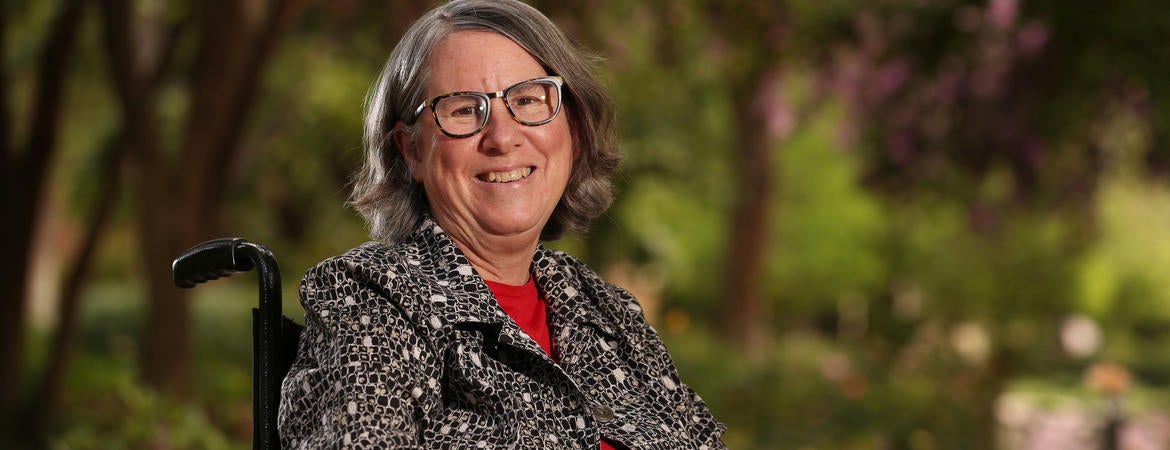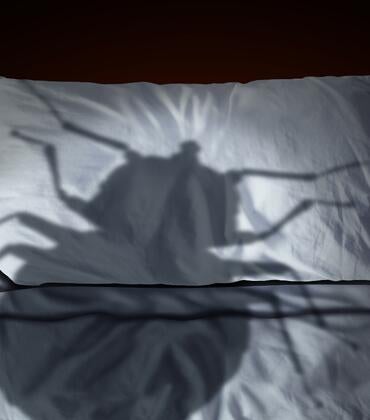
Marilyn Fogel, a University of California, Riverside endowed geoecology professor, received one of the highest honors in science this week with her election to the National Academy of Sciences, or NAS.
Membership in the NAS is rare. According to the Congressional Research Service, there are 6.9 million scientists in the U.S. However, there are only 2,347 active NAS members and 487 foreign associates.
“I’m thrilled to be inducted,” Fogel said when she learned the good news. “There aren’t many days like this in a person’s career. It was also a shock to be elected – I’m very interdisciplinary and have always considered myself an iconoclast.”
Fogel’s fieldwork has taken her to the deserts of Australia, the Bermuda Triangle’s Sargasso Sea, and other desolate locations to help her answer questions about Earth’s past and its possible future. She collects fossils that offer clues into the way extinctions happened and how climate changes over time.
In addition to searching for clues to answer big questions about Earth’s history, Fogel also analyzes meteorites to answer questions about whether there is life elsewhere in the universe and how life might function on other planets.
She cites the 1972 discovery of the first algae and bacteria fossils as the earliest inspiration for her career direction. She sought to combine chemistry, biology, and earth science into her research, and in so doing helped pioneer the emerging field of biogeochemistry.
“Dr. Fogel’s election to the National Academy of Sciences is a richly deserved recognition of the immense impact that she has had on so many different branches of science over her long, illustrious career,” said Earth and Planetary Sciences Department Chair David Oglesby.
A graduate of the University of Texas at Austin’s Marine Science Institute with a doctorate in botany and marine science, she has worked as a member of NASA’s Astrobiology Institute since 1998.
Her long list of accomplishments also includes becoming a Fulbright Scholar, president of the Biogeosciences section of the American Geophysical Union, and serving on the National Research Council’s Space Studies Board. In addition, she was the first woman ever to win the Alfred Treibs Medal in organic geochemistry for lifetime achievement in the field. She is a fellow of the Geochemical Society, the American Association for the Advancement of Science, and the American Geophysical Union.
In 2016 she joined UC Riverside’s Earth and Planetary Sciences department as the Wilbur W. Mayhew Professor of Geoecology, and director of the EDGE Institute.
Elected this year along with 99 other new members and 25 foreign associates, Fogel brings the total number of current UC Riverside faculty elected to the NAS to 12. She joins Richard Schrock, Susan Wessler, William Jury, Barry Barish, James Dieterich, Alexander Raikhel, Natasha Raikhel, Xuemei Chen, Janet Franklin, Julia Bailey-Serres and Sean Cutler, all members of the College of Natural and Agricultural Sciences.
The NAS is a private, nonprofit society of distinguished scholars. Established in 1863 by President Abraham Lincoln, the NAS is charged with providing independent, objective advice to the nation on matters related to science and technology. Scientists are elected for membership as a result of their outstanding contributions to research.
Despite being wheelchair-bound due to ALS, Fogel maintains an active teaching and research schedule.
“Someone in a wheelchair can rise to the top of their field and make important contributions,” she said. “UC Riverside should be proud for hiring me. They knew of my illness, they accommodated me and encouraged me to do the work that I’ve always wanted to do.”
Nearly 200 living members of the NAS have won Nobel Prizes. Fogel joins Albert Einstein, Robert Oppenheimer, Thomas Edison, Orville Wright, and Alexander Graham Bell as members of the organization.



